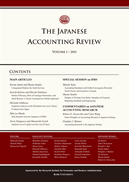This paper introduces an approach to the assessment of financial statement fraud risk and audit program planning and illustrates its application by simulating its use in the 1999 audit of Olympus. The approach incorporates a rigorous approach to assessing risk and current standards and conventions to fraud risk assessment not in practice during the period when a substantial financial statement fraud occurred at Olympus. The approach described in this paper illustrates a ‘what-if’ analysis that suggests the possible effectiveness of using updated standards, practice and research on detecting financial statement fraud.In the proposed approach, which is based on the Theory of Belief Functions, auditors follow three steps: (1) fraud risk assessment at the overall financial statement level, (2) fraud risk assessment at an account level, and (3) assessment of account, transaction and evidence schemes used to perpetrate fraud. In the evidential network, formal auditor belief assessments concerning evidence obtained in each audit step are aggregated by using Dempster’s rule. High aggregated assessments of belief-in-fraud or plausibility-of-fraud which exceed the thresholds established by the audit firm requires the auditors to engage in further investigation, to heighten the level of professional skepticism, and, where appropriate, to adopt a forensic audit approach.The results of analyzing the 1999 audit of Olympus demonstrate that the applications of current standards applied jointly with our approach would have likely both indicated a high plausibility and belief that fraud existed and would have likely directed the audit team to effective forensic audit procedures.
抄録全体を表示
